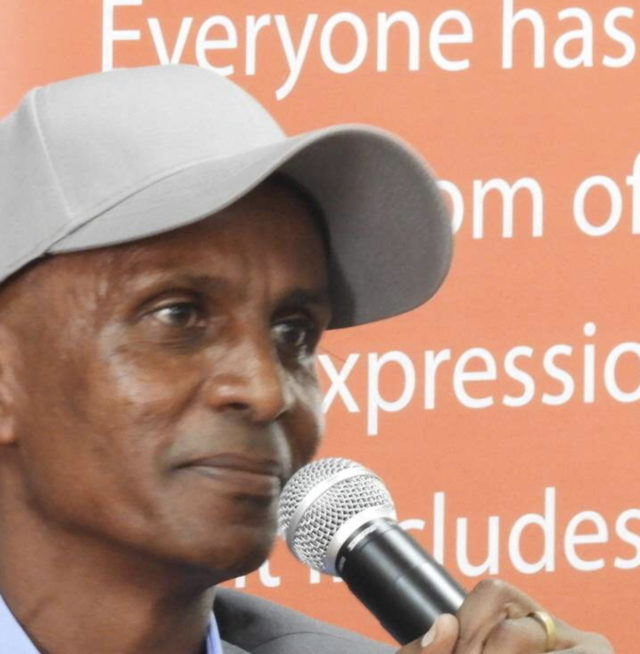Police in Addis Ababa this morning prevented journalist and former Amnesty International Prisoner of Conscience, Eskinder Nega, from holding a press conference to announce plans for his new TV station, Senai. Police officers blocked the entrance to the Hilton hotel turning journalists and other attendees away.
This follows a similar move on 3 June when the police barred a previous press conference organized by Eskinder to announce his plans for his TV channel at the Ethiopia Hotel, also in Addis Ababa.
“This harassment is solely aimed at frustrating the outspoken Eskinder Nega and curtailing his right to freedom of expression. It is unacceptable and must be stopped because Ethiopia’s laws do not require press conferences to be approved or licensed. The police have no right to stop press conferences,” said Joan Nyanyuki, Amnesty International’s Director for East Africa, the Horn and the Great Lakes.
In March this year, Eskinder tried to hold another press conference on the administration of Addis Ababa but it was cancelled by the police for “security reasons”.
Eskinder also uses Twitter to voice his opinions on a variety of issues, where he has also faced hostility, including threats to his life.
“This week’s interference with Eskinder’s press conferences show that the police and other authorities are not fulfilling their role in upholding freedom of expression in Ethiopia,” said Joan Nyanyuki.
“While Eskinder’s statements may be offensive to some, they fall under the right to freedom of expression permitted under international law and must therefore be respected.”
The Ethiopian authorities must consider training the police on human rights and their role in upholding and protecting everyone’s rights, as well as designing a national awareness campaign to sensitize the public on human rights as the country emerges from decades of repression.
Background
Eskinder Nega, a journalist and blogger, was released from prison in February 2018 after serving seven years of an 18-year prison sentence. Since his release, he has been publishing the weekly Ethiopis newspaper. He has been leading discussions on issues such as democracy, ethnic nationalism, and the administration of Addis Ababa.

























